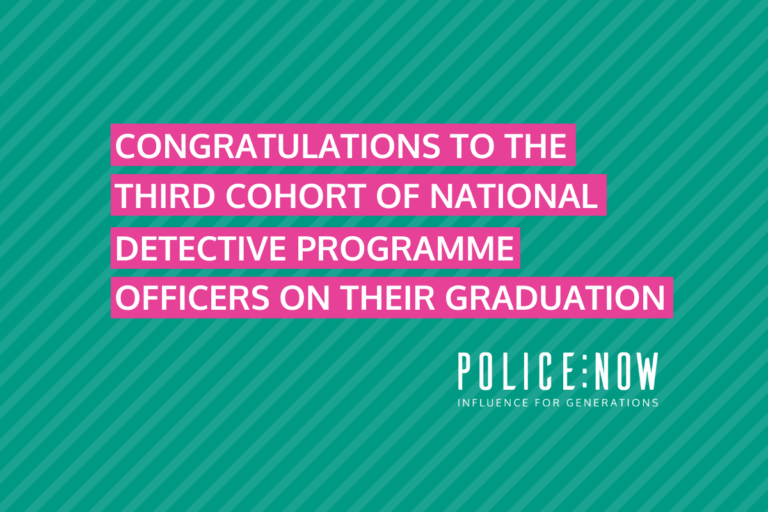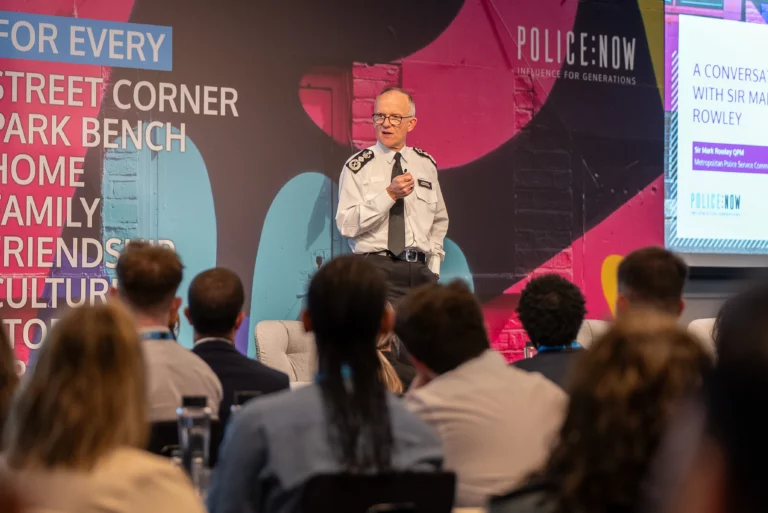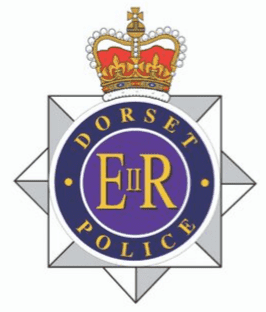Recent crime figures for England and Wales released by the Office for National Statistics (ONS) show that knife crime has risen to record levels. In the year ending December 2018 there were over 44,000 offences recorded by police involving a knife or sharp instrument, up 33 per cent since the year ending March 2011.
Knife crime and serious youth violence continues to affect the lives of many young people living in Britain. Police officers across the country are working tirelessly to tackle this spread of violence. We’ve recently spoken to PC Roberts who is the Dedicated Ward Officer for Lower Edmonton in Enfield, London and a participant on the National Graduate Leadership Police Now programme.
PC Roberts, what are the challenges facing your policing team in Edmonton?
- Lower Edmonton is one of the 10 percent most deprived wards in the UK. As a borough, Enfield is one of the most challenged areas for serious youth violence, with 620 knife crime offences reported in 2018.
- 60 per cent of victims and suspects are 10-30 years old and 80 per cent are male[1].
(Stats from the Enfield Crime Reduction Implementation Team (ECRIT) Performance Report, January 2019)
What have you and your team been doing to address serious youth violence?
Given the specific profile of those vulnerable to being involved with knife crime, my team and I targeted schools and a boxing club in the local area of Lower Edmonton, to try and break the cycle of crime amongst young people.
We ran informative sessions in Eldon Primary School to gather perceptions about policing from the pupils and to understand the factors that may be preventing them from seeking help or reporting a crime. I then implemented a survey of 120 pupils at Lower Edmonton School, where I found that 50 percent of pupils thought the police existed solely to arrest people and the same numbers felt worried or scared when they saw the police. With this data, we worked with the local schools, a boxing club, the Edmonton Eagles and the Schools officers, safeguarding and council staff to increase understanding of the police role and develop positive relationships with young people in the area.
How have you involved the local community?
By working closely with the schools and talking to the children, coffee mornings at Eldon Children Centre, and using our school network to target contact points. We provided students with the opportunity of 12 community boxing sessions, inviting the most challenging schools in the area to join. I’ve even started training myself at the Edmonton Eagle boxing club!
We also raised the profile of our team’s knife crime operations by maintaining an active social media profile. We tailored posts to the local area to help reassure the public and maintain confidence as they can see first-hand the action being taken by their local policing team.
Have you had any feedback and what are you planning next?
I have engaged a local mosque, running self-defence classes with the girls whilst my male colleagues are working with young male attendees of the mosque. We arranged a trip to the custody suite, because the children were interested and had asked us a lot of questions about them. Looking at the evidence-base, we were careful to avoid scaremongering, but focused instead on education and community engagement. On 22nd June the neighbourhood team and boxing club are running a community event to raise awareness about knife crime. One teacher from Lower Edmonton Primary School said:
“Beth and Nick left our children, parents and Staff with food for thought, a positive insight into the Police and dispelled many myths. They are an absolute credit to the force.”
PC Beth Roberts spoke to Police Now Forces Partnerships Officer, Ingrid Leake
To learn more about PC Roberts work please visit the Police Now Impact Library: https://policenowimpactlibrary.org.uk/presentation/lower-edmonton-reducing-serious-youth-violence/






